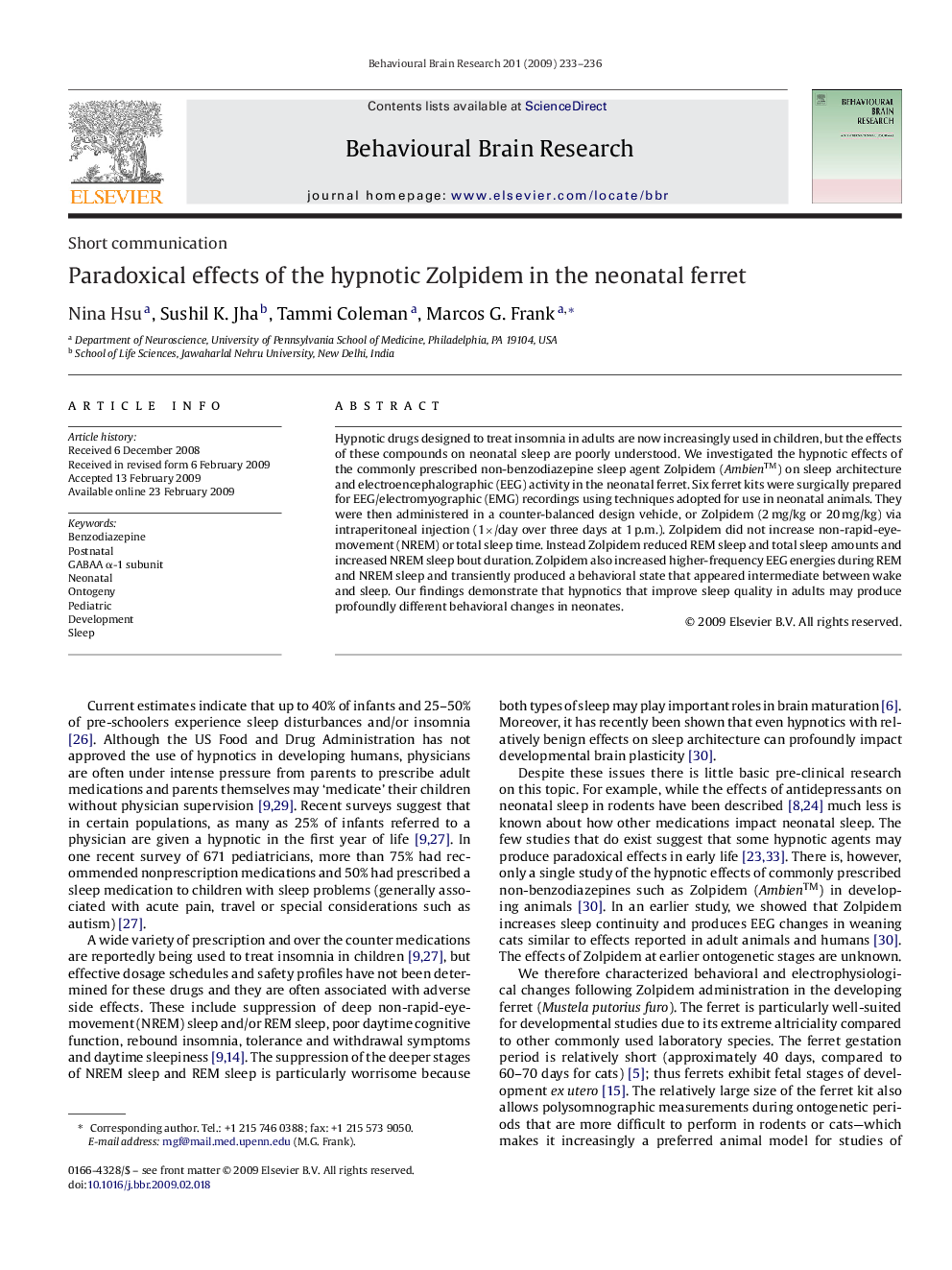| Article ID | Journal | Published Year | Pages | File Type |
|---|---|---|---|---|
| 4314649 | Behavioural Brain Research | 2009 | 4 Pages |
Hypnotic drugs designed to treat insomnia in adults are now increasingly used in children, but the effects of these compounds on neonatal sleep are poorly understood. We investigated the hypnotic effects of the commonly prescribed non-benzodiazepine sleep agent Zolpidem (Ambien™) on sleep architecture and electroencephalographic (EEG) activity in the neonatal ferret. Six ferret kits were surgically prepared for EEG/electromyographic (EMG) recordings using techniques adopted for use in neonatal animals. They were then administered in a counter-balanced design vehicle, or Zolpidem (2 mg/kg or 20 mg/kg) via intraperitoneal injection (1×/day over three days at 1 p.m.). Zolpidem did not increase non-rapid-eye-movement (NREM) or total sleep time. Instead Zolpidem reduced REM sleep and total sleep amounts and increased NREM sleep bout duration. Zolpidem also increased higher-frequency EEG energies during REM and NREM sleep and transiently produced a behavioral state that appeared intermediate between wake and sleep. Our findings demonstrate that hypnotics that improve sleep quality in adults may produce profoundly different behavioral changes in neonates.
